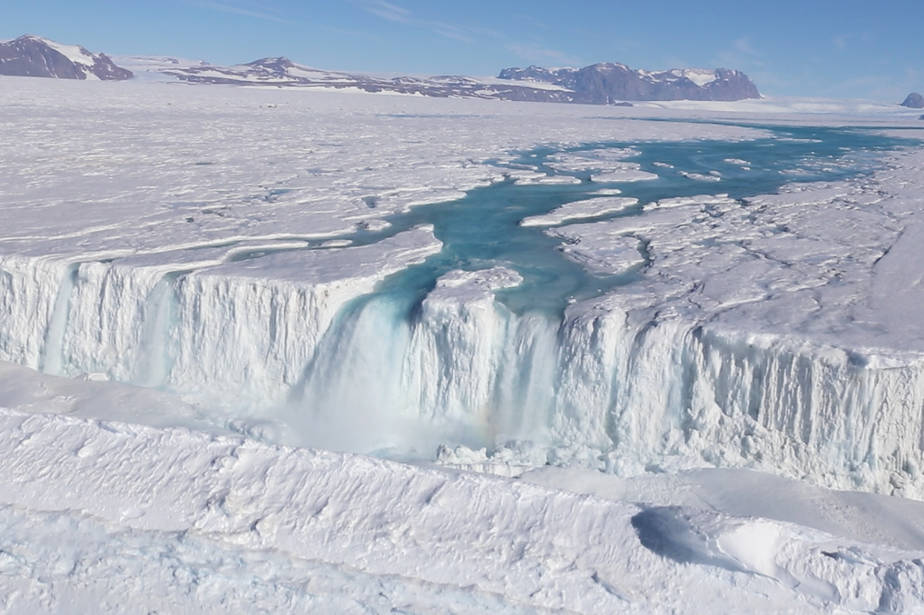SOURCE: Inside Climate News and Nature
DATE: June 13, 2018
SNIP: The most complete assessment to date of Antarctica’s ice sheets confirms that the meltdown accelerated sharply in the past five years, and there is no sign of a slowdown.
That means sea level is expected to rise at a rate that will catch some coastal communities unprepared despite persistent warnings, according to the international team of scientists publishing a series of related studies this week in the journal Nature.
The scientists found that the rate of ice loss over the past five years had tripled compared to the previous two decades, suggesting an additional 6 inches of sea level rise from Antarctica alone by 2100, on top of the 2 feet already projected from all sources, including Greenland.
Between 1992, when detailed satellite measurements started, and 2012, Antarctica lost about 76 billion tons of ice per year. But since 2012, that rate has tripled to about 219 billion tons of ice loss per year, the scientists found.
Another study, published June 13 in the journal Science Advances, raises even more concerns about the vulnerability of Antarctic ice to global warming.
Data from radar and laser readings of the ice enabled scientists with the University of Texas at Austin and the University of Waterloo to map a vast network of channels in the base of many ice sheets formed by intrusions of warm water. Some are several kilometers wide, said University of Texas at Austin researcher Jamin Greenbaum.
They found the channels everywhere they looked, including beneath the ice shelf of the Totten Glacier, in East Antarctica, as well as in Greenland. While scientists have known about the channels for quite some time, the new study found a relationship between what’s happening below the ice and on the surface.
Warm water intrusions are melting the ice from below so much that the ice in those channels is cracking. That allows surface meltwater to flow into the fractures, which can destabilize the ice shelf and increase the chances that big chunks will break off, Greenbaum said.
See also:
* Antarctic ice loss has tripled in a decade. If that continues, we are in serious trouble at the Washington Post
* After Decades of Losing Ice, Antarctica Is Now Hemorrhaging It at The Atlantic

